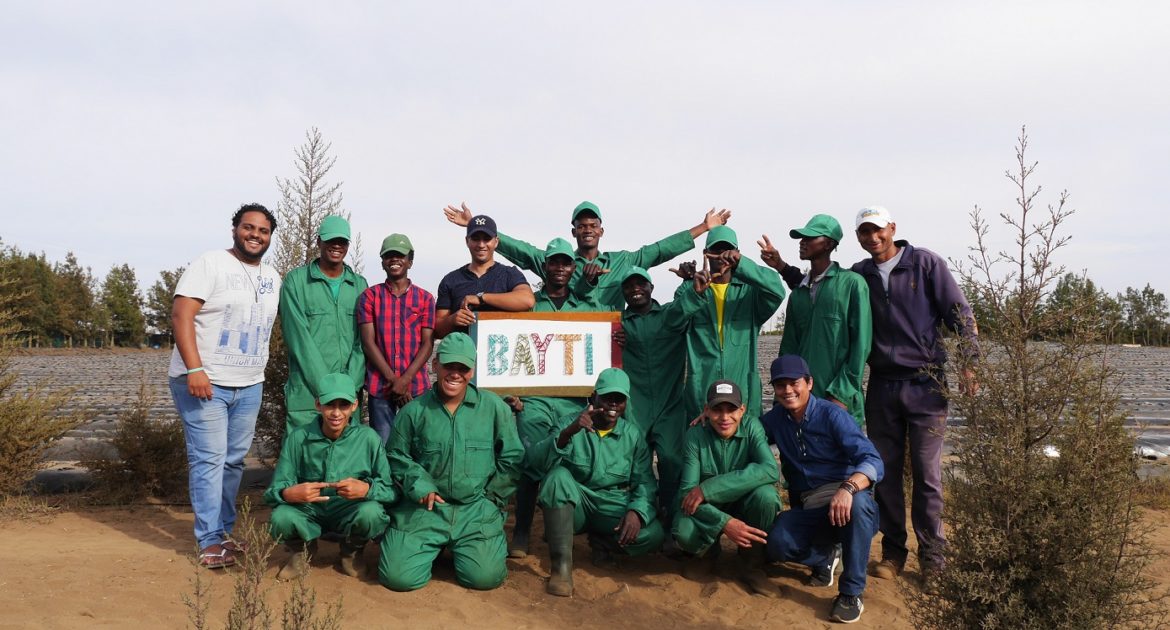
Henry Bautista worked as a communication consultant within the Bayti organisation in Morocco between July and November 2019 as part of the “Protection of Children, Women and Other Vulnerable Communities (PRODEF)” project. This project, led in consortium by Lawyers Without Borders Canada (LWBC) and the IBCR, is implemented with the support of the Government of Canada via World Affairs Canada.
The Bayti association is a partner of the IBCR in Morocco within the framework of the PRODEF volunteer cooperation programme (protection of the rights of children, women, and vulnerable communities). Bayti exists since 1995 and, in 24 years of activity, has set up numerous programmes to address the various social issues affecting children, particularly street children.
Currently, the association intervenes in Casablanca, Essaouira, and the Kenitra region through its reception and day centres. Its main activities are aimed at the prevention of all forms of violence against children; legal assistance; psychosocial rehabilitation; family and school reintegration; and access to vocational training for young people in difficulty.
Bayti currently runs four centres with their own specific activities and projects. This article will focus on the Farm-School in the city of Kenitra.
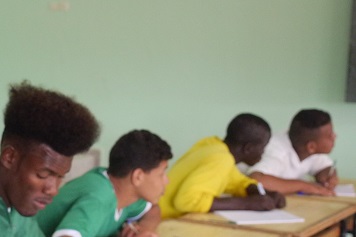
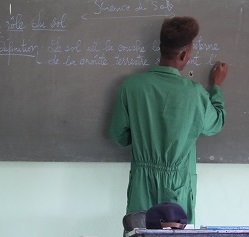
Bayti’s Farm-School: a place of hope for unaccompanied minors.
As Morocco has intensified its efforts to limit illegal immigration to Spain in recent months, the government has deployed agents to strenghten the fight against organised networks and limit exits by sea, and the Royal Navy has been requisitioned for rescue at sea. As a result of these actions, there has been a significant decrease in the number of migrants from sub-Saharan Africa to the Iberian Peninsula from Moroccan ports. These results, although positive for the government, have a considerable impact on the migrant population.
An article in the Spanish newspaper El Pais[1] reveals that reinforced surveillance by the Moroccan government has led to an increase of the cost of the Mediterranean crossing for sub-Saharan migrants, with the only real effect of shifting flows to more distant and dangerous points on the Atlantic coast, particularly the Salé region between Kenitra and Rabat. As a visible result of this situation, many minors find themselves stranded in Morocco and unable to continue their journey to the coveted European land. With no legal presence in the country, they cannot work and are forced to live on the streets and beg to survive. Many have travelled alone, except for some families.
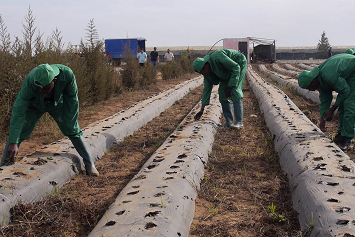
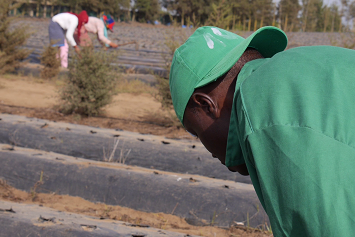
Some organisations, including Bayti, are working on behalf of this disadvantaged population, whose safety and integrity are at risk. In its Farm-School project near the city of Kenitra, 14 young boys are currently housed, of whom 12 are of sub-Saharan origin.
The establishment, created in 2005 for young people in difficult situations, offers an alternative for social and professional reintegration through the working of the land. After one year of theoretical and practical training, the young people receive a diploma recognised by the State.
These young people thus have access to housing, food, clothing, and can communicate with their families without restriction. They are also monitored by a psychologist, who has, among other things, set up discussion groups to evoke their traumas and expectations.
Some of them, facing the difficulty of keeping on with their journey, have chosen to extend their stay in Morocco, and are trying to settle there, such as the young Saïdou, who voluntarily told us his story. Of Guinean origin and having grown up in Algeria, he arrived at the Farm-School in September 2019.
Coming from Algeria, Saïdou arrived in Morocco with the initial objective of transiting there before continuing to Europe. However, unforeseeable circumstances led him to settle temporarily in the country.
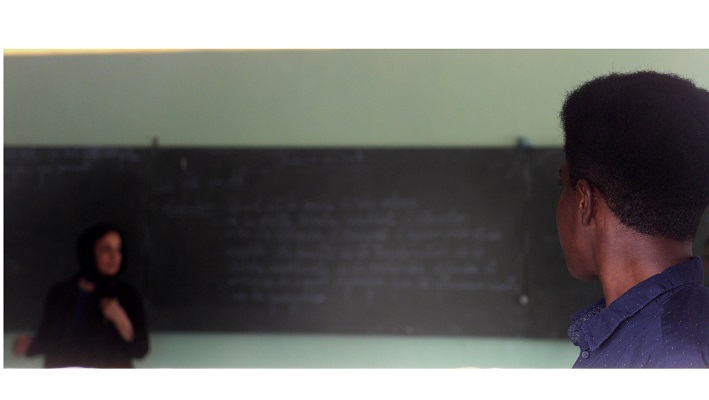
“Life here hasn’t been easy for me; I’ve been through things I don’t want to mention here.”
During his journey, he met the Bayti association: “Today I am here, they took me to a school where I am being trained in agriculture. We grow strawberries and other fruits.” Saidou has now access to theoretical and practical training that will enable him to obtain a diploma and a job in the future. “I wanted to go to Europe to get a job so that I could have money to meet my needs.” But now, the decision to continue on his way to Europe is less obvious: “Why leave Morocco? Why would I move? I don’t want to miss my chance; I’m going to take advantage of it. Today I am in the hands of a good association that helps migrants; it assists them, gives them vocational training, a diploma and helps them find a job […] I give this testimony to motivate migrants living in Morocco, Algeria, or elsewhere: wherever you find an opportunity, don’t let it slip away…“.
“It’s not necessarily in Europe [where] the wealth is, the wealth is in Africa, or America, or Australia. Wherever you live, look for good relationships and [be] serious, that’s success… I can’t say that I’m 100% comfortable because even if I were in the United States, I couldn’t be 100% satisfied, but I say, “Thank God”, I’m taking advantage of my opportunity.“
Testimonies such as this one help to understand the situation of migrant minors in Morocco.
Some young people will decide to stay; others will pursue the dream that encouraged them to undertake their adventures, and see the country and the passage through Bayti as a stage on the road, in order to survive until the next departure.





